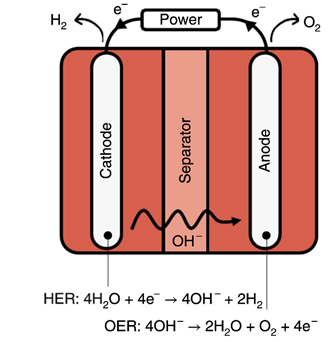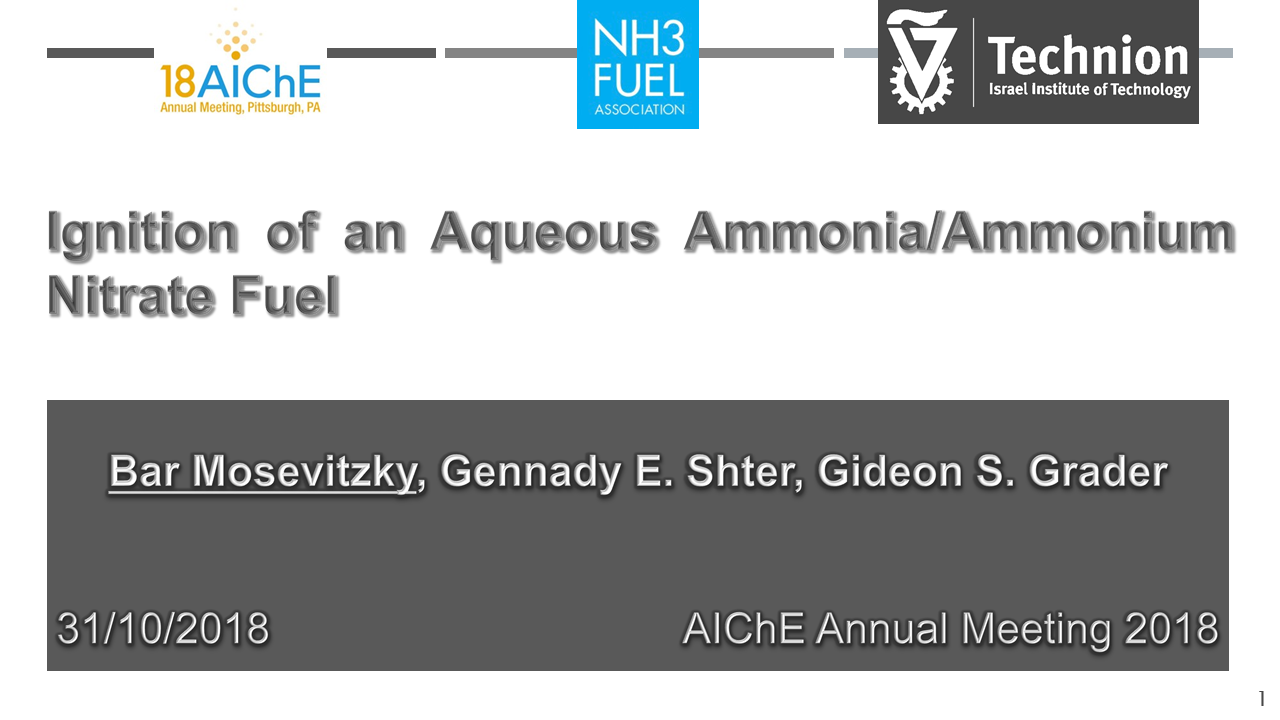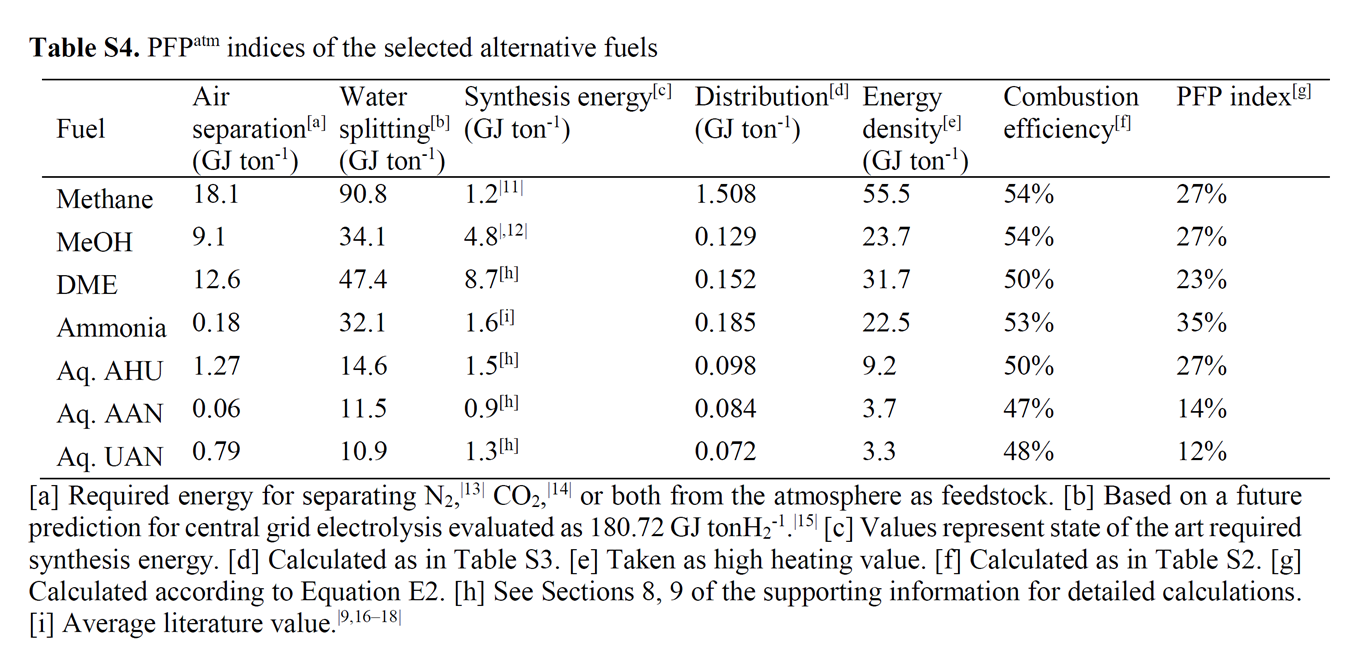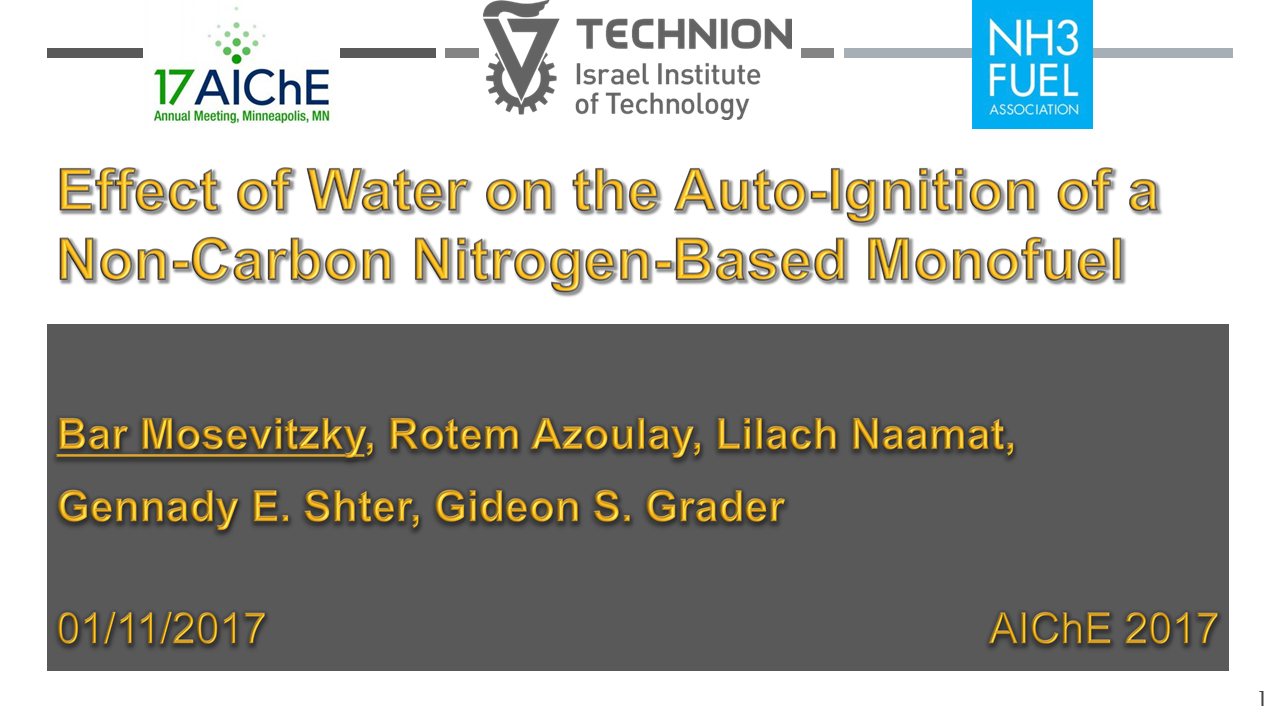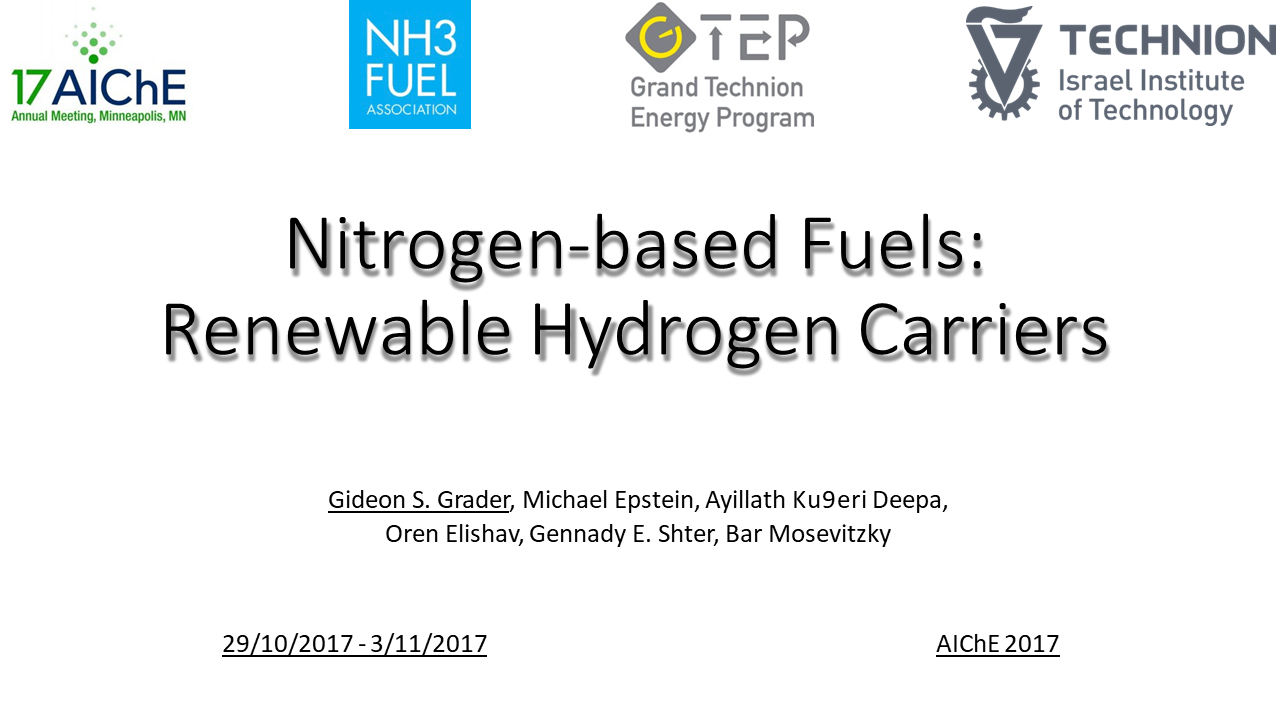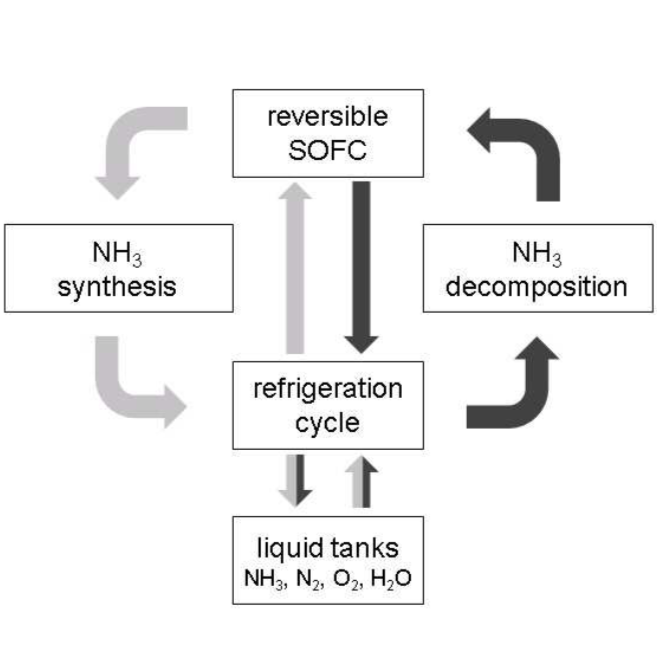Content Related to Technion - Israel Institute of Technology
Presentation
Analysis of an Ammonia/Ammonium Nitrate Fuel's Thermal Decomposition By Mass Spectrometry and Thermogravimetric Analysis
Research on renewable synthetic fuels has become a hot-topic in recent years. This is due to the long-term energy storage capabilities of chemical bonds and their potential compatibility with current energy infrastructure. Specifically, nitrogen-based fuels offer a carbon-free solution to wide scale implementation of renewable energies. Therefore, the inherent chemistry involved in the utilization of these fuels for stationary and mobile power generation is of prime interest. Unlike ammonium nitrate, ammonia suffers from unstable combustion characteristics. Therefore, adding ammonium nitrate to ammonia combustion may stabilize the process. However, while ammonia’s gas-phase reaction mechanism is well studied, ammonium nitrate’s is poorly…
Article
Israeli Group Develops New Electrolysis Technology
Stephen H. Crolius October 08, 2019
Last month a group of researchers from the Technion Israel Institute of Technology published a paper, “Decoupled hydrogen and oxygen evolution by a two-step electrochemical–chemical cycle for efficient overall water splitting,” in the journal Nature Energy. The key word in the title is “efficient.” In a September 15 Technion press release, the researchers state that their technology “facilitates an unprecedented energetic efficiency of 98.7% in the production of hydrogen from water.” Applied to the appropriate use case, the technology could lead to a major improvement in green ammonia’s ability to compete with brown ammonia and other low-carbon energy carriers.
Presentation
Ignition of an Aqueous Ammonia / Ammonium Nitrate Fuel
To achieve a truly renewable energy market, the intermittent power generation of sources such as solar and wind must be overcome. Renewable ammonia can be synthesized using these sources to be used as a long-term energy storage medium. For this reason, the use of ammonia as a synthetic fuel has garnered significant attention in recent years. Aqueous AAN (ammonia/ammonium nitrate) is a carbon-free ammonia based monofuel suitable for energy storage applications. This fuel is safe to store and transport, and its combustion products consist mainly of water and nitrogen. Effective use of this fuel requires an in-depth understanding of the…
Article
Full program announced for the 2018 NH3 Event Europe
Trevor Brown February 08, 2018
The second annual European Conference on Sustainable Ammonia Solutions has announced its full program, spread over two days, May 17 and 18, 2018, at Rotterdam Zoo in the Netherlands. The international cadre of speakers, representing a dozen countries from across Europe as well as the US, Canada, Israel, and Japan, will describe global developments in ammonia energy from the perspectives of industry, academia, and government agencies.
Article
N-Fuels vs. C-Fuels: Nitrogen “superior” to carbon as a hydrogen carrier
Stephen H. Crolius November 17, 2017
Gideon Grader, a Faculty Dean at Technion Israel Institute of Technology, and Bar Mosevitzky, one of the members of his laboratory, spoke in separate talks at the NH3 Energy + Topical Conference about one of the Grader Research Group’s key focuses: nitrogen-based energy carriers. Grader and his team champion the idea that ammonia can be the starting rather than ending point for nitrogen-containing fuels for heat engines. The focuses of their research include ammonium hydroxide ammonium nitrate (AAN), ammonium hydroxide urea (AHU), and urea ammonium nitrate (UAN). As described below, this work is an indispensable addition to the C-fuel vs. N-fuel debate well known to proponents of ammonia energy. And the Grader team stakes out a position: per the abstract of Grader’s talk, “using nitrogen as a hydrogen carrier can potentially offer a superior option.”
Presentation
Effect of Water on the Auto-Ignition of a Non-Carbon Nitrogen-Based Monofuel
The fluctuating nature of renewable energy sources is becoming a limiting factor in their widespread utilization. Energy storage solutions must be developed to overcome this issue. Chemical fuels are considered to be a promising solution to this problem. We are studying the implementation of nitrogen-based fuels for this purpose. An aqueous solution of ammonium nitrate and ammonium hydroxide (AAN) is suggested as a carbon-free nitrogen-based synthetic monofuel. This solution may serve as a renewable nitrogen-based synthetic hydrogen carrier since it is safe to store, transport and utilize. Since ammonium hydroxide (AH) and ammonium nitrate (AN) act as reducer and net…
Presentation
Nitrogen-Based Fuels: Renewable Hydrogen Carriers
Renewable energy sources such as solar and wind suffer from an intermittent power output, making energy storage a key element in future energy infrastructure. Fuels offer both high energy densities and efficient transport compared to other energy storage alternatives. One energy storage solution is water electrolysis. However, the generated hydrogen is incompatible with the global fuel infrastructure, inhibiting its implementation as an energy vector. Storing hydrogen on carrier atoms provides a safe and convenient way to utilize and transport renewable energies. While carbon–based fuels are commonly suggested, using nitrogen as a hydrogen carrier can potentially offer a superior option. In…
Article
Ammonia – and Other Nitrogen-Based Fuels
Stephen H. Crolius April 20, 2017
Next month the print edition of Fuel Processing Technology will feature a paper entitled “Auto-ignition of a carbon-free aqueous ammonia/ammonium nitrate monofuel: a thermal and barometric analysis.” This title is provocative. First, what is this idea of a fuel composed of a mixture of ammonia and ammonium nitrate (AN)? If ammonia is a good fuel, is it made better with the addition of ammonium nitrate? Second, why is it aqueous? Is the presence of water a feature or a bug? Third, what is a monofuel and why is this term used when the fuel is a mixture of two molecular species? And finally, why is the paper ultimately about auto-ignition?
Article
Ammonia for energy storage: economic and technical analysis
Trevor Brown March 02, 2017
Developers around the world are looking at using ammonia as a form of energy storage, essentially turning an ammonia storage tank into a very large chemical battery. In the UK, Siemens is building an "all electric ammonia synthesis and energy storage system." In the Netherlands, Nuon is studying the feasibility of using Power-to-Ammonia "to convert high amounts of excess renewable power into ammonia, store it and burn it when renewable power supply is insufficient." While results from Siemens could be available in 2018, it might be 2021 before we see results from Nuon, whose "demonstration facility is planned to be completed in five years." But, while we wait for these real-world industrial data, the academic literature has just been updated with a significant new study on the design and performance of a grid-scale ammonia energy storage system.
